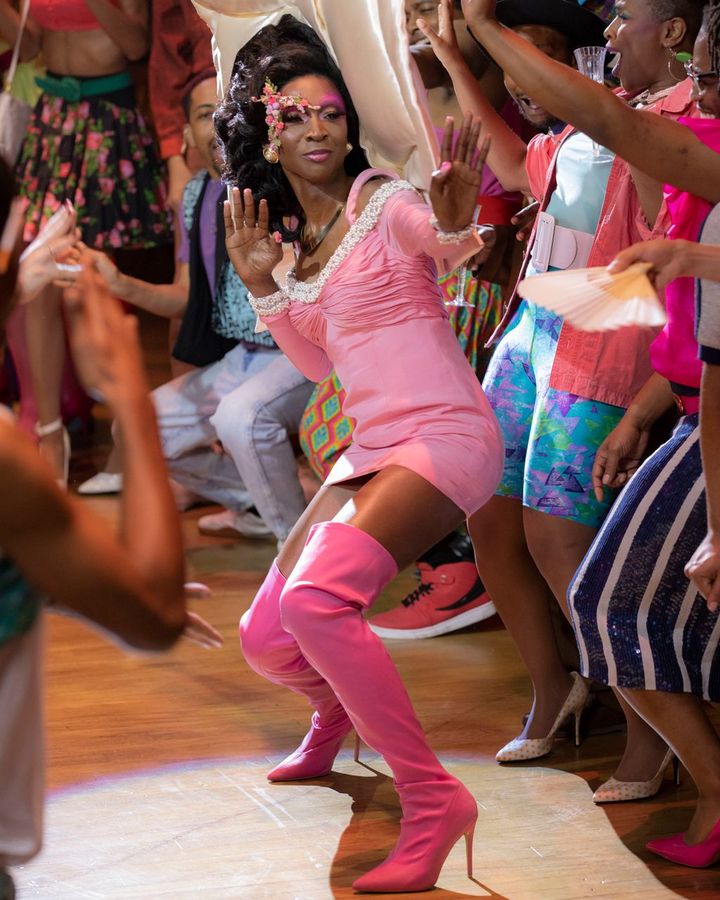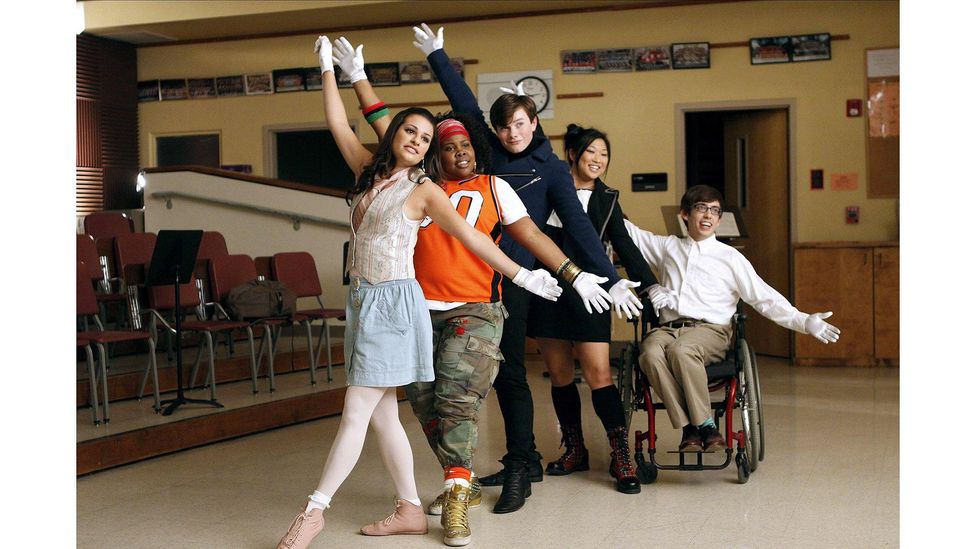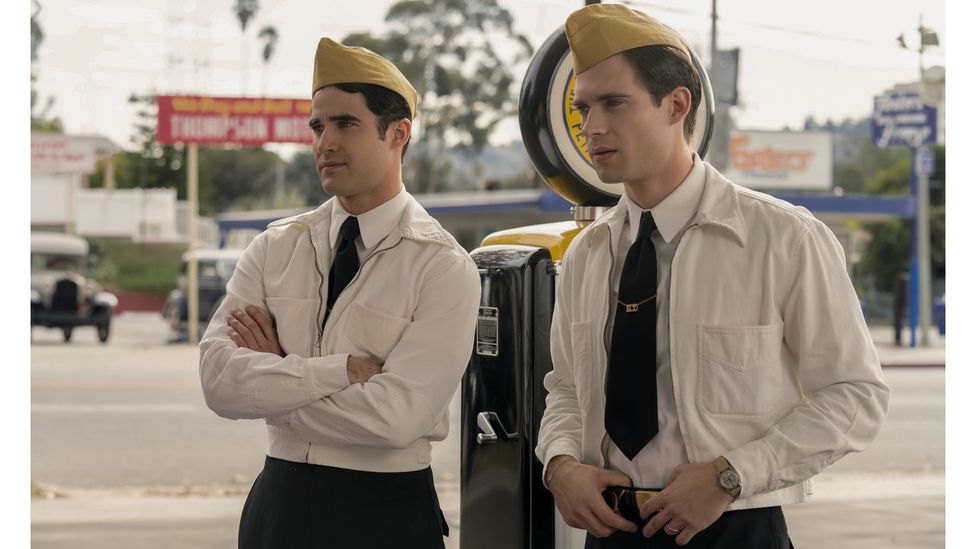
From Glee to his huge Netflix deal, Murphy has long been Hollywood’s golden boy. But new claims about his show American Horror Story have provided the latest unwanted headlines for his empire. Laura Martin reports.

Angelica Ross, who first worked with Murphy on his FX series Pose, has made various claims about her experiences with him and on his show American Horror Story (Credit: FX)
While that might have been a relief for Murphy, he could have had greater difficulties to contend with in recent weeks. Angelica Ross – who previously appeared in two series of American Horror Story and another Murphy series, Pose – used her platform on X (formerly known as Twitter) to complain about Murphy and his shows. First she claimed that she had been ignored by Murphy after he said he wanted to go ahead with her idea for an American Horror Story season starring black women. She then followed up by claiming this had potentially cost her an opportunity working on a Marvel production.
Ross also made allegations about what happened on the set of American Horror Story: 1984. In an in-depth interview with the Hollywood Reporter, she claimed that she had to leave the set due to a crew member who was operating the vehicle she had to drive on camera “wearing a racist T-shirt” every day. She further claimed that after she tweeted “It’s a shame that I do all this work out in the world on anti-blackness and racism and have to come to a set and do the same work”, she was told by producer Tanase Popa that Murphy wanted her to take the tweet down.
Next, Ross alleged, Murphy himself rang her and angrily took issue with her feeling of being silenced, pointing to his advocacy for black trans women. In a statement to The Hollywood Reporter, however, Popa countered Ross’s account, saying that he overheard the phone call in question and what Murphy “basically” said was “I don’t understand why you would go to Twitter instead of coming to us”. BBC Culture contacted Murphy with regards to Ross’ allegations about her interaction with him and the behaviour on the American Horror Story set, but he has not responded.
This was surely not the publicity Murphy would have wanted for his longest-running series. But these events are just the most recent difficult headlines related to the TV empire of the industry’s golden boy, who was said to have secured one of the biggest ever deals for a TV producer in 2018 when he moved from Fox and FX over to Netflix in a contract reported to be worth as much as $300 million.
During the summer, amid the Hollywood writers’ strike, filming of the new season of American Horror Story was picketed by members of the Writers Guild of America (WGA) and Screen Actors Guild-American Federation of Television and Radio Artists (SAG-AFRA) as it was one of the few productions still up and running despite the strike, on the basis that the scripts had been submitted prior to the union action. “[Murphy is] a member [of the writers’ guild] and it just feels like keeping these things up and running is counterproductive to our overall mission,” WGA strike captain T Cooper said to the New York Times.
Murphy was then forced to deny an allegation on X, formerly known as Twitter, from WGA strike captain Warren Leight, who wrote that crew members for AHS would “be blackballed in Murphy-land” if they observed the picket. A spokesperson for Murphy told Variety this claim was “absolute nonsense. Categorically false” and then Leight did a follow-up post apologising and retracting his claim as “unsubstantiated” and “completely false and inaccurate”.
The rise of a super-showrunner
Murphy has had a remarkable rise to the top in Hollywood: having started off as an entertainment journalist writing for publications like the Los Angeles Times and Entertainment Weekly, he moved into screenwriting in the late 1990s, co-creating the teen drama, Popular, in 1999 for The WB. It was cancelled after two series, but he then went on to create the hit plastic surgery drama Nip/Tuck for FX, which ran from 2003 to 2010. Its watercooler success opened doors for Murphy, marking him out as someone who would begin to lead the TV zeitgeist.
I think it’s unclear whether so many series by the same showrunner can be maintained in both the current and future streaming eras – Sarah ES Sinwell
It was the teen singing club show, Glee, which ran from 2009 to 2015, that took Murphy’s career to stratospheric heights. A global hit, it made instant stars of its leads, including Lea Michele and the late Corey Monteith and won praise not only for its bold musical format, in which the cast reworked famous pop songs, but for covering issues like sexuality, race and teen relationships in what was seen as a progressive manner. Murphy, a gay man, felt vindicated in his desire to tell often joyous stories of those who were marginalised or made to feel like outsiders in high school, telling The New Yorker in 2018: “Against all odds, the quote-unquote ‘fag musical’ became a billion-dollar brand.” A billion-dollar brand that then had Netflix knocking at his door.

Murphy’s career hit a new peak with his high-school musical series Glee, which ran from 2009 to 2015 (Credit: Alamy)
One of the remarkable things about Murphy’s output has been his sheer prolific-ness. From the early ’10s, the rate of Murphy’s output began to increase at a fast pace, as he launched series after series. The American Horror Story franchise began in 2011, with American Crime Story launching with The People vs OJ Simpson in 2016. While keeping these shows going on cable channel FX, and launching into his Netflix deal, he also kept a foot in more traditional network TV with his 9-1-1 procedural franchise, which began on Fox in 2018. He has become synonymous with glossy productions that revel in OTT-ness. “Camp” is a word often used describe to his work, though that was “a dirty word” to him, he told The New Yorker; he preferred “baroque”.
In 2018, he also launched what was his most radical and genuinely ground-breaking show so far: Pose, which drew on the seminal 1990 documentary Paris is Burning to tell the story of Black and Latinx groups living in New York and performing as part of the ballroom scene. As most of this real-life community was made up of LGBTQ+ people, Murphy, alongside co-creators Steven Canals and Brad Falchuk, was determined that his production should be equally inclusive. He was pioneering in the TV mainstream for casting trans actors in trans roles, and made sure this diversity stretched to the writers’ and producers’ room as well.
“It is the most important thing I’ve been a part of,” Murphy said about Pose around the third and final series in 2021. Lead star Michaela Jaé Rodriguez won best actress in a TV drama series at the 2022 Golden Globes, marking the first time a trans actor had won at the ceremony.
Signs of trouble?
Elsewhere in his TV show empire, things have begun to look shaky. Murphy’s first few productions for Netflix failed to land. There was The Politician, an exhausting comedy-drama about a precocious teen’s rise to become a state senator, and Ratched, a shallow origin story about Nurse Ratched from One Flew Over the Cuckoo’s Nest. Worst of all was Hollywood, Murphy’s idealised fantasy about LA during the Golden Age of cinema, which was called “little more than a vapid exercise in self-regard, and self-celebration” by The Guardian’s Lucy Mangan.
Ryan Murphy has regularly made commercially and critically successful shows. Most people would be thrilled with his track record – Bethany Klein
Has the Murphy magic been starting to wear off? Writing for Vulture in January 2021, Jackson McHenry said that Murphy’s Netflix productions “feel like window dressing, jewel-toned, inert, and wildly expensive”, suggesting that this could be down to the vast amounts of money at the centre of the deal: “He has too much at stake to risk upsetting the tableau.”
There has also been the suggestion in some quarters that he has been spreading himself too thinly. “Over the past few years, Murphy has premiered at least two series per year,” notes Sarah ES Sinwell, associate professor of Film and Media Arts at the University of Utah, “and he has currently multiple other TV series in the works, including American Love Story, American Sports Story, and A Chorus Line. With all the recent cancellations on streaming services, I think it’s unclear whether so many series by the same showrunner can be maintained in both the current and future streaming eras.”
However, Bethany Klein, Professor of Media and Communication at the University of Leeds, tells BBC Culture: “It’s easy to imagine a showrunner being criticised for the opposite – not taking enough risks, sticking to one lane. Ultimately, Ryan Murphy has regularly made commercially and critically successful shows. Most people would be thrilled with his track record.”

Some of Murphy’s recent series such as 2020’s Hollywood have received very mixed reviews (Credit: Netflix)
One big hit of his recently was Netflix’s Dahmer – Monster: The Jeffrey Dahmer Story, which became one of the streamer’s most-watched series – but not without controversy. Despite passing one billion views in just 60 days, many critics found the explicit retelling of the real life serial killer gratuitous. In a 2022 interview in The New York Times, Murphy defended his impulse to put a spotlight and close-up camera on the macabre. “The world is a dark place and getting darker, and people are looking for a place to put their anxieties,” he said. Netflix renewed the series almost immediately, with two new runs planned, one of which is set to be about the Menéndez brothers.
The future of the Murphy empire
While it may divide opinion, however, the Murphy-verse continues apace. Among the many productions that IMDB currently lists Murphy as in development or filming, there is the new series of his Feud franchise, which will return to the milieu of Murphy’s beloved old Hollywood with a dramatisation of how Truman Capote fell out with his society gal pals, and an untitled miniseries about Marlene Dietrich, on which he has been working with regular collaborator Jessica Lange.
When the dust settles, I wouldn’t expect to see his star diminished – James Lyons
There are questions over where Murphy will channel his energies next, as his five-year deal with Netflix expired at the end of June. The same month, it was reported that Murphy had been “negotiating with Disney over the past year”, though Murphy is yet to comment or announce what his next move will be.
There are those in the industry who believe that he’s an unstoppable force, despite the controversies and critical brickbats. James Lyons, head of Film and Television at the University of Exeter, says: “As he’s been overseeing Fox [part of Disney] shows anyway while he has had his Netflix deal, this tends to suggest how highly he is still regarded by many of those in the industry. When the dust settles, I wouldn’t expect to see his star diminished, and I would imagine if/when he signs with Disney, he’ll continue to expand the range of what he does – pleasing many, upsetting some others – for some time to come.”
The chances are that wherever Murphy lands next, the whole world will still be watching.
If you liked this story, sign up for the weekly bbc.com features newsletter, called The Essential List. A handpicked selection of stories from BBC Future, Culture, Worklife and Travel, delivered to your inbox every Friday.
If you would like to comment on this story or anything else you have seen on BBC Culture, head over to our Facebook page or message us on Twitter.
;





